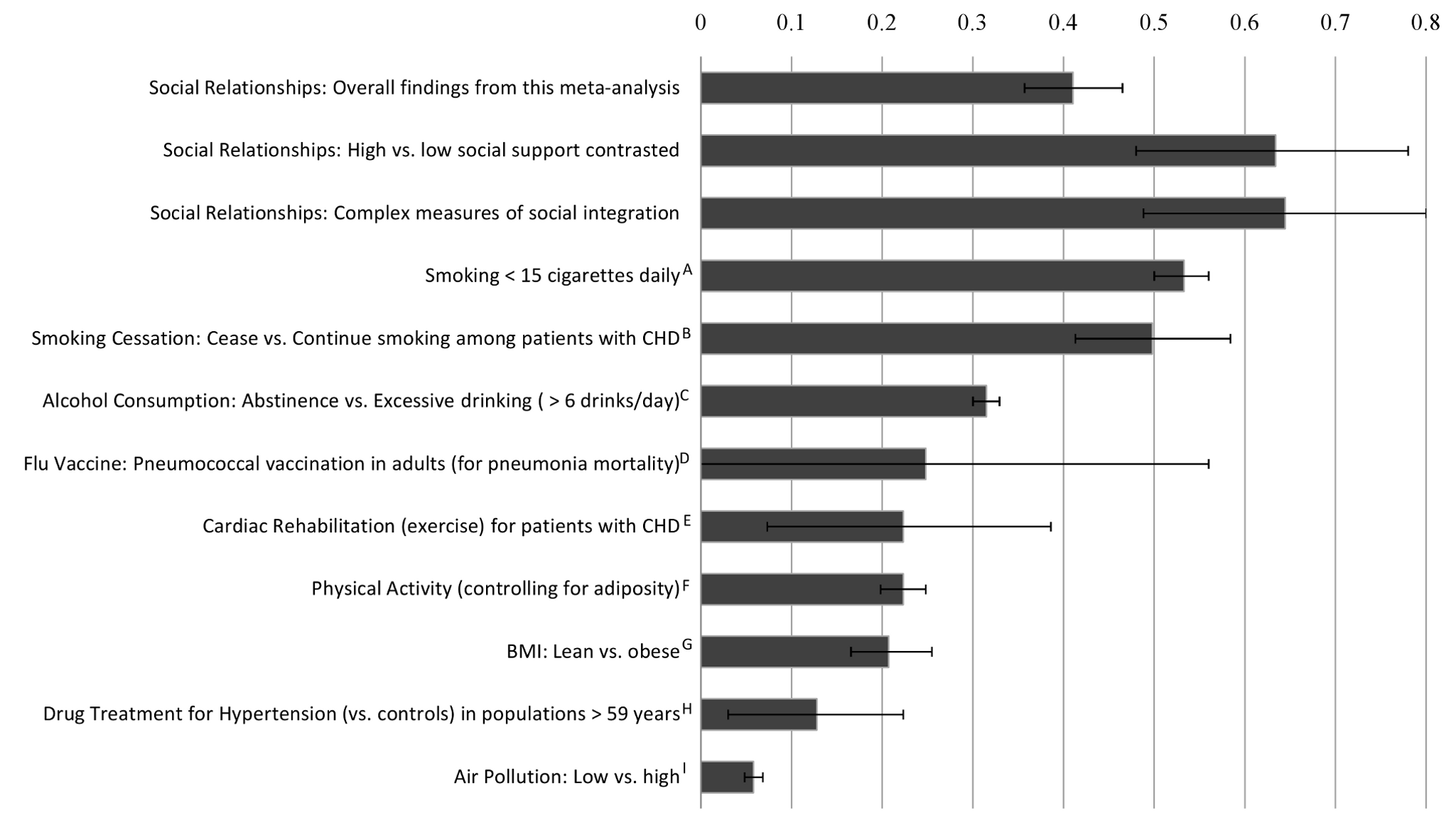Strong relationships improve survival as much as quitting smoking
Last updated on 22nd March 2018
The August 11th edition of the British Medical Journal reported: "Having strong social relationships seems to have an effect on survival comparable to that of quitting smoking and larger than controlling traditional risk factors, such as obesity or hypertension. A meta-analysis of social relationships and mortality looked at 308,849 participants aged 63.9, on average, at baseline; 29% died during the follow-up of 7.5 years. Overall, strong social relationships improved the odds of survival by 50%. Similar results were found for two aspects of relationships, defined by the researchers as structural (integration in social networks) and functional (received or perceived social support), although the link with integration was somewhat stronger. The association was strongest when complex measures of relationships were used, which take into account several types of relationships, as opposed to simple binary measures, such as lives alone or lives with others ... The findings remained after adjusting for age, sex, health status, and cause of death." The BMJ was referring to a paper published recently in PLoS Medicine which put together the results from 148 relevant research studies - "Social Relationships and Mortality Risk: A Meta-analytic Review" - and included the following fairly startling chart:

A linked PLoS editorial - "Social relationships are key to health, and to health policy" - commented: "Evidence from observational studies has documented the association between social relationships and beneficial effects on health outcomes, such as mortality. However, the precise size of this effect, and of which aspects that form part of social relationships are most strongly linked with positive outcomes, remain unclear. Now, a systematic review and meta-analysis of the literature sheds further light on these questions ... The researchers examined studies carried out in both community populations and patient samples, and examined only the "hardest" endpoint-mortality ... The researchers reported that stronger social relationships were associated with a 50% increased chance of survival over the course of the studies, on average. The effect was similar for both "functional" (e.g., the receipt or perception of receipt of support within a social relationship) and "structural" measures of relationships (e.g., being married, living alone, size of social networks). Quite remarkably, the degree of mortality risk associated with lack of social relationships is similar to that which exists for more widely publicized risk factors, such as smoking. Arguably, such a level of risk deserves attention at the highest possible level in determination of health policy."
Click on "Relationships & mortality" for a downloadable PDF handout of this blog post.
Interestingly the importance of the relationship-mortality risk was emphasised too in last month's post on this website "Friendship - a three day residential workshop". This is such an important issue for stress, health & wellbeing. Good to see significant research highlighting this area.
